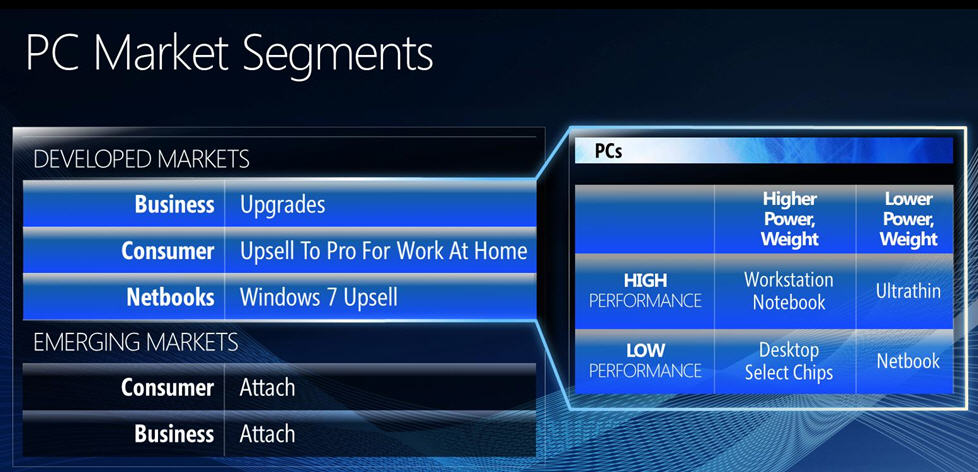Ballmer: Ultra-thin PCs will be the answer to netbooks

Microsoft CEO Steve Ballmer is feeling misunderstood.
Ballmer spent the bulk of his July 30 kick-off presentation at the company's annual Financial Analyst Meeting (FAM) trying to explain to Wall Street analysts there why the Microsoft-Yahoo search partnership announced yesterday is a win-win for the two companies. (And shouldn't have resulted in Yahoo's stock tanking, as it did, because many believed Yahoo sold off its biggest asset, its search business.)
But Ballmer also talked up another area where he hoped to sway analysts to take his point of view: Netbooks.
"I think many of you (Wall Street analysts) think we have problems we don't have in the Windows business," Ballmer said. "And I think we've got -- built some great strengths and, yet, I want people to understand kind of how revenue and kind of success in the marketplace, what does it look like if we're strong in the marketplace, what does revenue look like."
Ballmer, unlike some Microsoft execs, wasn't afraid to say the word "netbook." In fact, he told FAM attendees that netbooks are synonymous with MIDs (Mobile Internet Devices).
Ballmer disputed the notion that netbooks are killing Microsoft's Windows client revenue base. He showed a slide he admitted the rest of his team had warned him was overly complex (and I have to say I agree) to try to show why netbooks aren't going to keep chipping away at Windows' margins.
Here's a less-confusing Ballmer slide:
(To see a larger version, click on the graphic.)
And here's the one that's left more than a few scratching their heads:
Ballmer told analysts there would be a new class of "ultra-thin" PCs" -- or high-end netbooks --coming this year that would combine the light weight of netbooks with high-power and high-performance of traditional PCs.
"When I talk to many of our customers, they say 'I love the Netbook but can I get one with a bigger screen?'" Ballmer said.
Those new ultra-thin PCs, the first of which will be coming later this year and, presumably running Windows 7, won't be as cheap as $299 or $399 netbooks, Ballmer admitted, but they will combine netbooks' portability, with some unnamed but higher-sounding prices that will make shareholders, analysts and Microsoft happy. (We'll see how happy they make customers who are spoiled by current netbook prices.)
"Our license tells you what a Netbook is. Our license says it has to have a super small screen, which means it probably has a super small keyboard and it has to have a certain processor and blah, blah, blah, blah," Ballmer said. But "we want people to be able to get the advantages of light-weight performance and be able to spend more money, with us, with Intel, with HP, with Dell and with many, many others. So the shifting dynamics here will continue to evolve."
Nebooks aren't the only enemy to Windows PCs. So are the emerging generation of new operating systems, like Google's Android and Chrome OS, Ballmer told attendees. Ballmer dismissed these new competitors as nothing but "thin clients" (while admitting that he still didn't know what Chrome OS will be. But then again, no one does.)
"Nobody believes in thin clients," Ballmer told analysts, meaning PCs with limited, if any local processing power.
"We have competitors who say they believe in thin clients. What they are really saying is they believe in our browser operating system and you hear it from Google and FireFox and you will hear it from a number of others," Ballmer said. "But don't think there is some magic technology, revolutionary thing that they believe in differently. They don't."
I heard Ballmer mention in passing a new message I hadn't heard before during his hour-and-a-half presentation. Microsoft has built itself on the high-volume, low-cost platform. But today, Ballmer talked about "high-volume, high-value." (He mentioned it in the context of comparing Windows to Linux.)
It'll be interesting to see if Microsoft can convince users -- in a world where netbooks are continuing to gain converts -- to spend more on PCs and more on upgrades with the new generation of Windows PCs coming this year.
